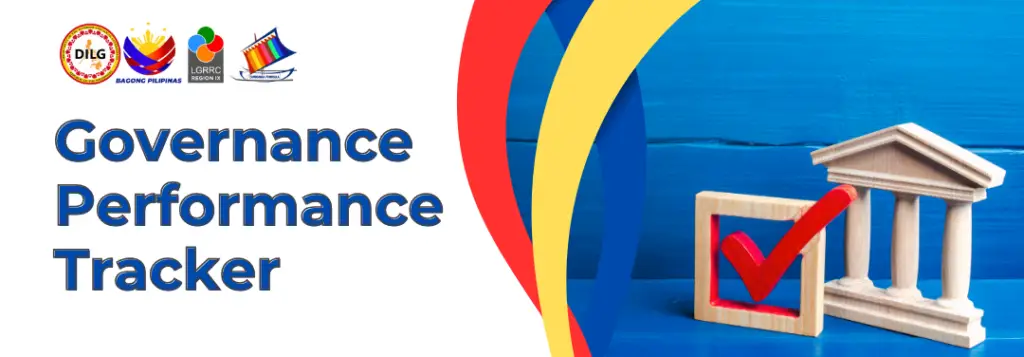 The Citizen Satisfaction Index System (CSIS) is a citizen-centric strategy that is capable of generating a balanced perspective from the citizens on the reach and quality of basic public services. In a sense, it is about the citizens’ voice in the local decision making process. Further, it is a set of data tools designed to collect and generate relevant citizens’ assessments and feedbacks on local governments’ services and delivery performances such as health, education, social welfare, governance, public works and
The Citizen Satisfaction Index System (CSIS) is a citizen-centric strategy that is capable of generating a balanced perspective from the citizens on the reach and quality of basic public services. In a sense, it is about the citizens’ voice in the local decision making process. Further, it is a set of data tools designed to collect and generate relevant citizens’ assessments and feedbacks on local governments’ services and delivery performances such as health, education, social welfare, governance, public works and
infrastructures, environment management, agriculture, peace and order and tourism. It is supplementary to the Local Government Performance Measurement System (LGPMS). Through the CSIS, the DILG renews its commitment to the primacy of public service.
Pursuant to DILG Memorandum Circular No. 2012-113 and being part of His Excellency President Benigno S. Aquino’s Development Plan, the CSIS will be implemented in 2013 until 2016. Based on the list of the National Competitiveness Council’s (NCC) Top 50 Competitive Cities and the provinces included in National Budget Memorandum (NBM) No. 118, 35 priority cities are to be covered by CSIS implementation for the year 2013.
In Region IX, Dipolog City has been chosen as one of the target cities of the CSIS in 2013 and Jose Rizal Memorial State University (Dipolog Campus) is the selected Local Resource Institute (LRI) to conduct the survey. LRIs are chosen in order to have an intermediary body between the LGU and the citizens.
On the 5th day of November 2013, the Department of the Interior and Local Government (DILG), Regional Office IX, Pagadian City represented by the Regional Director, PAISAL O. ABUTAZIL, CESO III and Jose Rizal Memorial State University (JRMSU), Dipolog Campus, Dipolog City a Local Resource Institute (LRI) represented by University President, Dr. Edgar S. Balbuena entered into a Memorandum of Agreement (MOA) and the two parties hereby agreed that the DILG-IX is committed to aggressively scale up interventions towards a kind of governance that value transparency, accountability, participation and performance while JRMSU, an institution which extends its expertise in the conduct of the survey research in the CSIS particularly in the data gathering, data analysis and report writing and its services to the public and other stakeholders.
The CSO Partnership Coordination Office, under the Bureau of Local Government Supervision (BLGS), shall take the lead in the implementation of the Citizen Satisfaction System Index.
The CSIS will collect primary data through the conduct of face-to-face household surveys in 35 LGUs. The target respondents are voting age adults (18years old and above) to be selected through systematic multi-stage random sampling. In this procedure, a number of spots in a city will be identified proportionate to the share of the population of the barangay to the total population of the LGU. Within spots, household will be selected randomly and then within households, probability respondents will also be selected. At a 95% confidence level, the sample size for each LGU is set at 150, with a margin of error of plus or minus 8%.
Local Resource Institutes (LRls) will be responsible for conducting the survey, data analysis and report writing. The engagement of LRls was identified to be the best strategy because: (a) they are deemed politically neutral; (b) they have a pool of experts who are familiar with research methods; (c) they are more capable of mobilizing field interviewers who can speak the local dialect; and (d) identifying with local colleges and universities showed easier establishment of rapport with respondents. In further assuring its non-partisan nature, a policy of non-engagement by the DILG and the LGUs in data gathering will be pursued.
With the recently concluded training on Citizen Satisfaction Index System 2013 Implementation conducted by the BLGS for the LRIs on November 14-15, 2013 in Davao City, set of activities were identified with the corresponding target dates of implementation. (Refer to the illustrated matrix below)
|
MILESTONES |
DATES |
|
Cascading of Fieldwork Protocols to Field Interviewers |
November 25-26, 2013 |
|
Preparation of Fieldwork Materials |
November 27-29, 2013 |
|
Start of Data Gathering |
December 2, 2013 |
|
End of Data Gathering |
December 7, 2013 |
|
Submission of Fieldwork Paraphernalia to Field Supervisors |
December 9, 2013 |
|
Back-checking (1 per spot) |
December 2-8, 2013 |
|
Preparation of Project Implementation Report |
December 10-17, 2013 |
|
Start of Data Processing and Analysis |
December 11, 2013 |
|
End of Data Processing and Analysis |
January 10, 2014 |
|
Preparation of CS Report |
January 11-25, 2014 |
|
Submission of Final Outputs to RO |
January 28, 2014 |
|
Submission of Final Outputs to BLGS $1· Citizen Satisfaction Report $1· Project Implementation Report |
February 7, 2014 |
The said training was attended by six (6) participants per region to wit: CSIS Regional Focal Persons and alternates together with the LRI team composed of the Project Manager, Field Supervisor and Data Processor.





